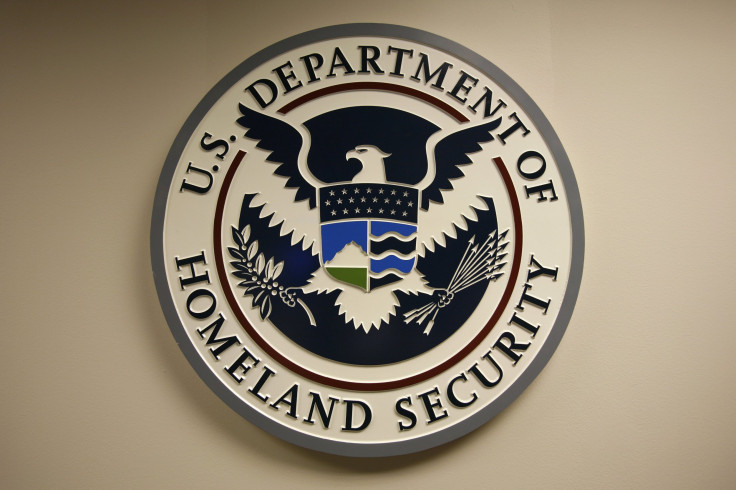Facial Recognition Failure? DHS Passenger Face Scanning Program Expansion Should Stop, Senators Say

Facial recognition systems used by the U.S. Department of Homeland Security make “frequent mistakes,” a report from Georgetown Law’s Center on Privacy and Technology released on Thursday said.
The report “Not Ready For Takeoff,” which comes before the holiday traveling rush, criticizes the DHS’ biometric exit pilot program. The program uses facial recognition technology to verify travelers’ identities as they leave the country. The biometric exit program is currently running in nine U.S. airports and has already scanned tens of thousands of travelers. Homeland Security plans on expanding the program next year to all of the country’s biggest airports.
The report, using Homeland Security data, found the facial recognition systems wrongly rejects as many as 1 in 25 passengers using valid credentials. That means that the biometric system could cause more than 1,600 travelers to be wrongfully delayed or kept from boarding a plane every day at New York’s John F. Kennedy International Airport alone, the reprot said.
Experts said the DHS “does not appear to have any sense of how effective its system will be at actually catching impostors—the system’s primary goal.” The report also pointed out privacy concerns related to the $1 billion dollar program.
DHS doesn't even know if its #airportfacescans program can spot impostors traveling on someone else's credentials—it hasn't tested this. This is like hiring a bouncer without knowing if he can spot fake IDs. Read more at https://t.co/RfGP5liPba
— Laura Moy (@lauramoy) December 21, 2017
This isn't CSI—it's real life. We can't just assume that a technically challenging program like #airportfacescans will work as intended. Something like this has to be developed carefully and tested thoroughly. DHS is not doing that. https://t.co/RfGP5liPba
— Laura Moy (@lauramoy) December 21, 2017
The report said the DHS program “stands on shaky legal ground,” since it did not receive an approval from Congress to use facial recognition technology on passengers.
“For all of the above reasons, Americans should consider whether perhaps it would be wiser to abandon DHS’ face scan-based biometric exit program, which is costly but offers no tangible benefits and many concerns,” the report concluded. “If DHS persists with the program, significant reforms are vitally necessary.”
Experts also called on airliners to not partner with Homeland Security to screen passengers with biometric data unless the DHS addressed the current program concerns.
1/ DHS is building a billion-dollar system to scan thousands of Americans' faces as they leave the country. These #airportfacescans are riddled with legal and technical problems. Read our new report at https://t.co/nkiVc9yJcy.
— Georgetown Privacy (@GeorgetownCPT) December 21, 2017
The report led to a bipartisan call from lawmakers. Sen. Edward Markey, D-Mass., and Sen. Mike Lee, R-Utah, sent a letter to the Homeland Security about the findings on Thursday. In the letter, the politicians said they were concerned about the flaws and privacy issues indicated in the report. The lawmakers said the “potential flaws with this biometric technology raise a number of questions, especially since no perfectly accurate biometric scanning program currently exists.”
Lee and Markey also called on DHS to halt the expansion of the program.
“We request that DHS stop the expansion of this program and provide Congress with its explicit statutory authority to use and expand a biometric exit program on U.S. citizens," the Senators wrote. "If there is no specific authorization, the we request an explanation for why DHS believes it has the authority to proceed without Congressional approval.”
In a statement to International Business Times, DHS said U.S. Customs and Border Protection “has a rigorous process in place to review data and metrics associated with biometric exit matching performance and the demonstrations have a matching rate in the high 90 percentile.”
DHS also said travelers are not prevented from boarding a plane if there is facial recognition mismatch, and that they “must only provide their travel document for manual review and verification prior to boarding.” The Department added that “CBP takes it privacy obligations seriously.”
The DHS statement continued:
“In addition, in an effort to be transparent, CBP held a dialogue with privacy advocates in August 2017 and will do so again in January 2018. As a result of those discussions CBP published frequently asked questions and produced signage used at the technical demonstration locations that explains alternative procedures are available. If a U.S. citizen is concerned about participating in the technical demonstrations, a traveler need only let a CBP officer or airline gate agent know and their documents will be reviewed to ensure they are the true bearer of the passport that is being presented. CBP has the responsibility to identify all travelers. [...]
CBP is working to meet the Congressional mandate for biometric exit in a way that’s most efficient and secure for the traveler and that is least disruptive for the travel industry, while also effectively enhancing border security.”
© Copyright IBTimes 2024. All rights reserved.




















